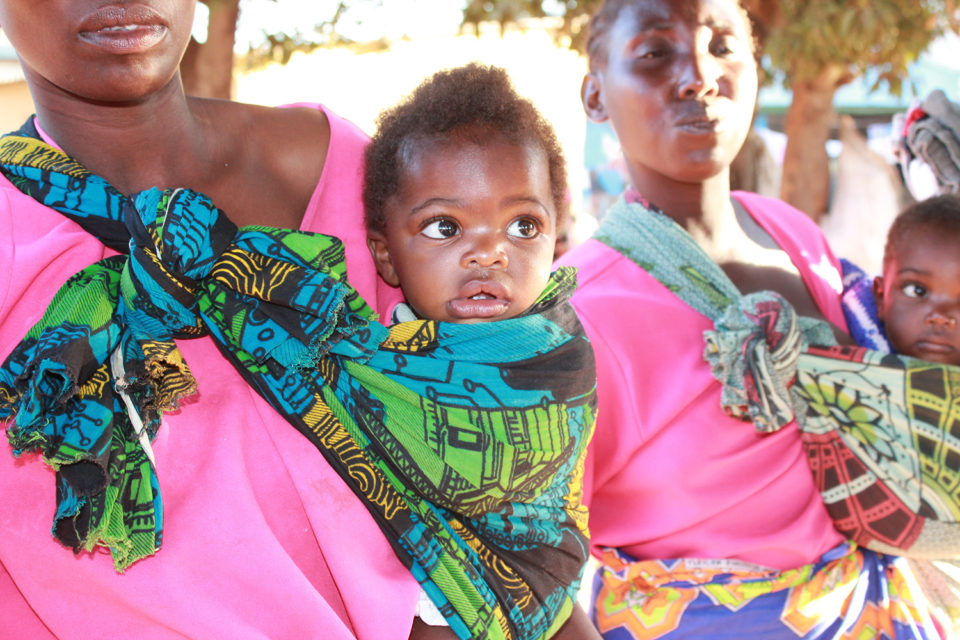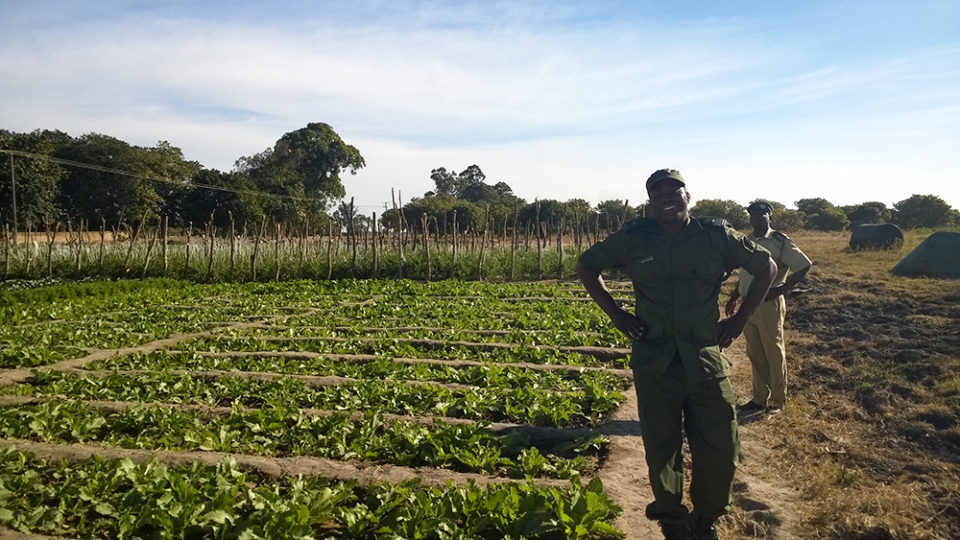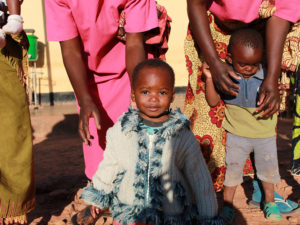With a small donation from GAA, Ubumi Prisons Initiative begins small tilapia-cultivation project in Zambia

One thousand U.S. dollars doesn’t go nearly as far as it used to. But to Anne Egelund, it was the right amount. And it came at the perfect time.
Egelund is the managing director of the Ubumi Prisons Initiative (UPI), a nonprofit organization dedicated to improving conditions in Zambia’s prisons – a difficult task. The native of Denmark, who has been working on human-rights causes in Africa for the past 13 years, first met fellow Dane Birgitte Krough-Poulsen when the two were working for a United Nations’ AIDS initiative.
Krough-Poulsen and other members of the Global Aquaculture Alliance’s Standards Oversight Committee — a group of 12 individuals that shape the Best Aquaculture Practices standards for aquaculture farms, hatcheries, feed mills and processing plants — were each recently given $1,000 to donate to a charity of their choice.
Krough-Poulsen steered her donation to UPI, so that it could build small tilapia ponds on the prison grounds for the inmates to grow their own food. Ubumi, said Egelund, means “life – caring for everyone’s life.”
It’s a de facto situation where a prison sentence might equal a death sentence.
The need for this small project, she added, is “huge,” as conditions in the prison can be deplorable, isolating and traumatizing. Nutritious food is an afterthought. Many of the inmates often wait years just to be sentenced, and those sentences can be erratic and harsh, the result of a faulty, inefficient and corrupt judicial system.
“What one needs to understand is nobody there really [cares] about people in prison. They did something wrong, or they wouldn’t be there. In a place where resources are scarce and the government struggles with budgets for health and education, decent conditions in prison are a hard sell for obvious reasons,” Krough-Poulsen said. Those conditions are, she added, “Extremely abusive. It’s a de facto situation where a prison sentence might equal a death sentence.”

According to UPI, there are 2,300 inmates at the Mukobeko Maximum and Medium Prison in Kabwe, where the organization has already had success in getting permission to grow a vegetable garden to produce food the inmates have come to rely on. Shockingly, living among the inmates are about 100 small children.
That’s because for women inmates, their young children – aged 4 and younger – often live with their mothers inside the prison and end up being victims of serious neglect. Egelund has also witnessed children there that are several years older. These “circumstantial children,” as they are known, belong to a vulnerable population in the prison that can become seriously ill due to malnutrition. There is also a strong social stigma working against prisoners, especially women, Egelund said.
“Often families will refuse to help if [the women inmates] are in prison,” Egelund said. “Husbands divorce them. They become quite isolated. The mothers don’t have many options. Some choose to send their children to orphanages.”

The $1,000 donation covered the cost of setting up two 3-cubic-meter ponds – one for selective breeding and the other for grow-out – where the inmates will cultivate Otjikoto tilapia (Tilapia guinasana). The prisoners have already been tending to vegetable gardens with great success, and according to Krough-Poulsen, they learn skills at growing crops that they can use if and when they leave prison.
“If you are making it out of there alive, the odds are stacked against you, big-time,” said Krough-Poulsen. “They have no money, have likely experienced violence, and might very well have [sexually transmitted diseases], limited skills and all of that. This project, not just the aquaculture thing, is really important from the point of view of giving people a decent start after prison.”
The hope is that the tilapia ponds can supplement the inmates’ diets with more than a cup of rice each morning, a bowl of Nshima (a maize porridge) for lunch and dinner and the occasional servings of beans or kapenta, a type of sardine native to Zambia and Zimbabwe.
“This is the first time we’re doing a fish project. We’re excited to see how it’s going to work,” said Egelund. “We have done chicken projects. The vegetables make a huge difference in their lives, as there is an enormous amount of malnutrition in the prisons. If it works as well as we want it to, we’ll dig more ponds.”
Fish works; this is definitely the way forward.
Egelund said farming fish is key, as it’s healthy and cheap to produce, as the prison will be paying for fish feed on a monthly basis.
“It’s much cheaper than chicken, and larger. It’s a win-win,” said Egelund. “Fish works; this is definitely the way forward.”
Egelund, who notes that the Zambia Correctional Service is recognized as one of the more progressive and ambitious prison authorities in Africa, hopes that other prison systems around Africa take notice, and follow this very simple blueprint to give their inmates some dignity, better nutrition and sense of pride. By giving the prisoners meaningful work, they may be viewed as productive individuals capable of positive change, and no longer passive receivers of aid.
“I’m hopeful of that. We work in several prisons already. We expect it will work. There’s no reason it shouldn’t,” she said. “It’s very cost efficient. We can save lives with very few funds.”
Author
-

James Wright
Editorial Manager
Global Aquaculture Alliance
Portsmouth, NH, USA
Tagged With
Related Posts

Responsibility
Social oysters: Aquaculture inspiring communities
Two New England shellfish producers are furthering their innovative social license initiatives, both in their hometowns and in food-insecure regions overseas. Island Creek Oysters and Matunuck Oyster Farm have become admirable aquaculture ambassadors.

Responsibility
Images: Small-scale aquaculture emerging in Africa
A study by University of Southampton Ph.D. candidate Alison Sky Simmance aims to investigate the role of small scale aquaculture in Malawi, a country where the demand for farmed fish is becoming more urgent in light of declining capture fisheries and high dependency on fish a vital source of animal protein.

Responsibility
Fairness, stability in ensuring human rights in seafood
In the last of our three-part series on advancing human rights solutions in seafood, Magdalena Lamprecht-Wallhoff shares how social investment is key to the culture and success at Regal Springs Tilapia, the world’s largest farmed tilapia producer.

Responsibility
Intelligence, integrity in the fight against forced labor in seafood
In previewing the SeaWeb Seafood Summit, the Advocate examines human rights in the supply chain and the people who advance solutions in rooting out worker abuses. In part one of a three-part series, Environmental Justice Foundation co-founder Steve Trent talks about linking environmental security with human rights.

